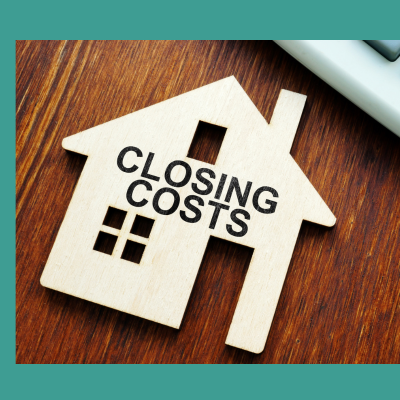If you’re in the process of buying a home, it’s important to understand the costs involved in the transaction. One of the most significant expenses that homebuyers face is closing costs. In this blog, we will explain what buyer closing costs are, who pays for them, and the different types of fees included.

How Much Are Buyer Closing Costs?
Closing costs are typically between 2% and 5% of the purchase price of the home. For example, if you purchase a home for $300,000, you can expect to pay between $6,000 and $15,000 in closing costs. The exact amount will depend on various factors such as the location of the property, the type of loan, and other fees that may apply.
Who Pays for Closing Costs?
Typically, the buyer is responsible for paying the closing costs. However, in some cases, the seller may agree to cover a portion of these expenses. Considering if there are any other offers or activity on the home, days on the market, and seller motivation can impact whether your closing costs may be all or partially covered by the seller. It’s important to negotiate with the seller or real estate agent to determine who will be responsible for paying the closing costs.
Origination and Application Fee
The origination fee is the fee charged by the lender for processing and approving your mortgage loan. It is usually between 0.5% to 1% of the loan amount. Additionally, some lenders may also charge an application fee. This fee can vary from lender to lender.
Appraisal Fee
The appraisal fee is the cost of having a professional appraiser assess the value of the property you’re purchasing. It’s usually around $400 to $600 but can vary depending on the location and size of the property.
Prepaid Taxes and Insurances
At closing, you will also need to pay prepaid taxes and insurance. This includes property taxes, homeowners insurance, and mortgage insurance. The amount you pay will depend on the value of the property and the length of time until the next tax or insurance payment is due.
Title Insurance and Closing Fee
Title insurance is a one-time fee that protects the buyer and lender from any legal claims against the property. The cost of title insurance can vary but is usually around 0.5% of the purchase price. The closing fee is the cost of closing the sale and is typically around $125 to $200.
Credit Report Fee
Lenders will require a credit report to evaluate your creditworthiness. The fee for a credit report is usually around $30 to $75.
Inspection Fees
Home inspections are optional but highly recommended to ensure that the property is in good condition. The cost of a home inspection can range from $500 to $1200, depending on the location and size of the property.
Homeowner Insurance Premium
Homeowner insurance is a necessary expense to protect your property in case of damages or theft. The cost of homeowner insurance can vary depending on the location, size, and value of the property.
Mortgage Insurance
Mortgage insurance is required for some types of loans, such as FHA loans, and is typically between 0.5% to 1% of the loan amount. This fee is paid monthly and is included in your monthly mortgage payment.
In Conclusion
Buyer closing costs are an important consideration when purchasing a home. They can add up quickly and it’s important to budget accordingly. Understanding the different types of fees involved can help you plan and negotiate with the seller or real estate agent to ensure a smooth transaction. It’s also important to work with a trusted lender and real estate agent who can guide you through the process and answer any questions you may have. Watch our video here.
